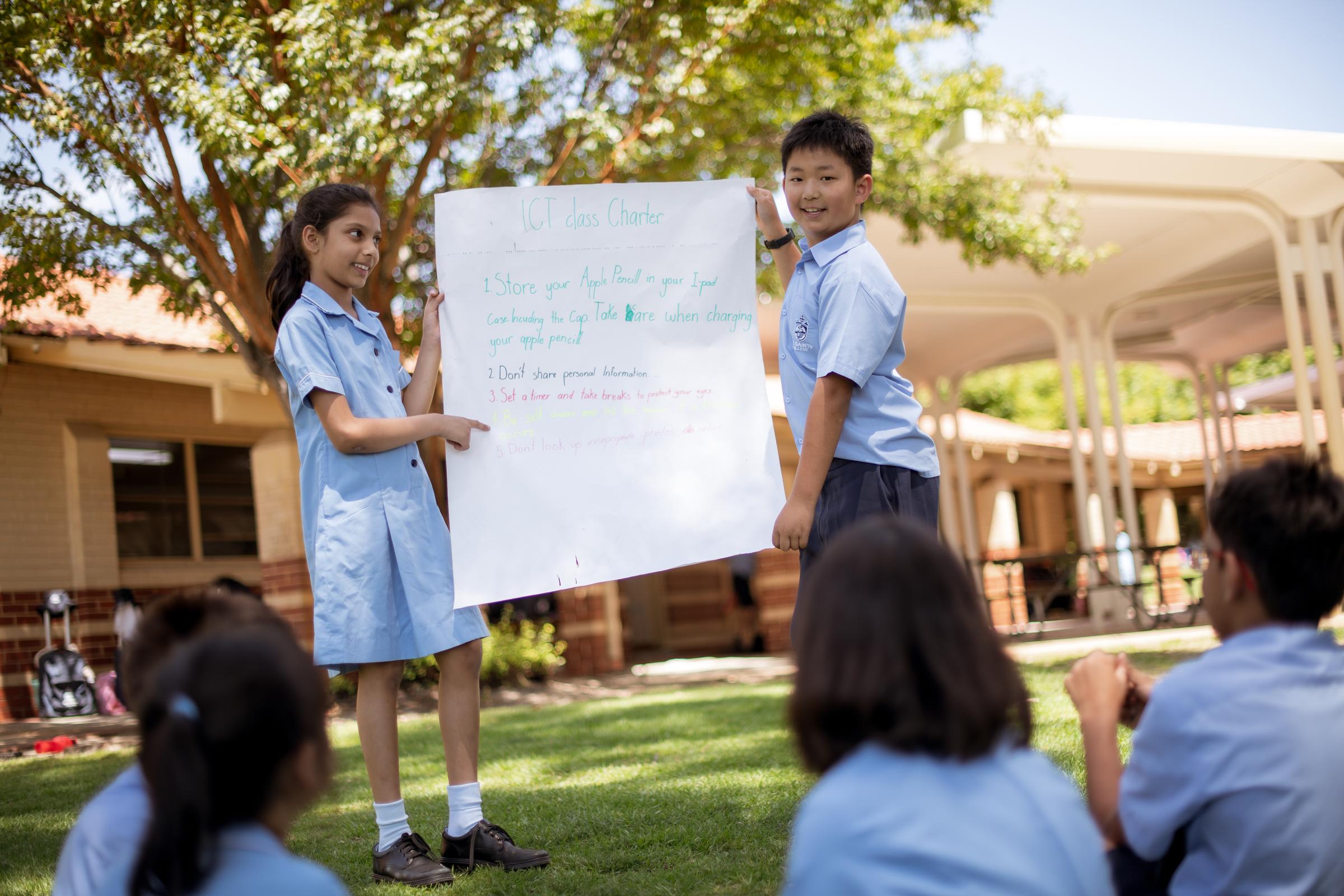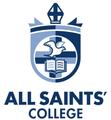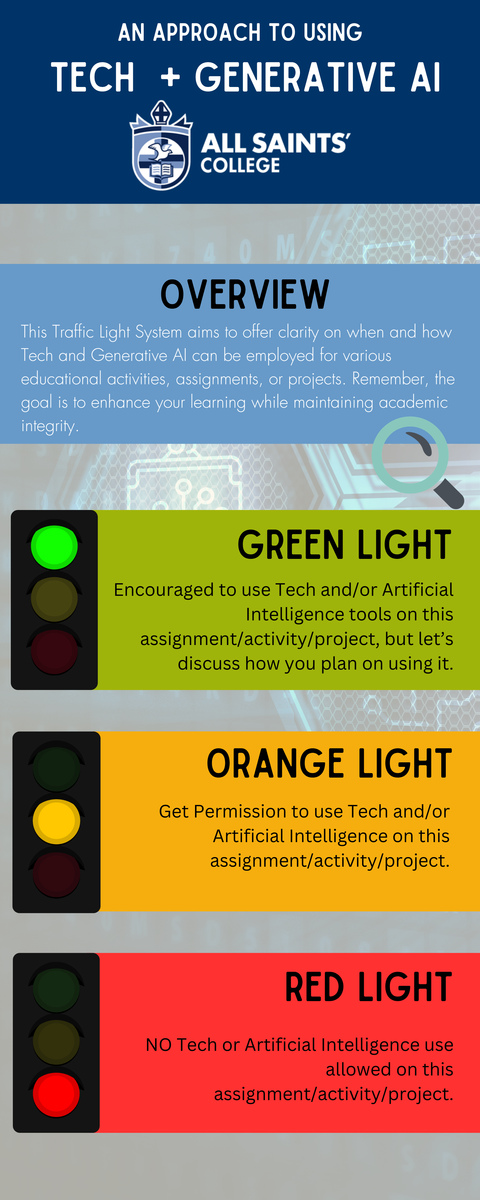Important Announcements

Artificial Intelligence and ASC
As emerging technologies such as artificial intelligence (AI) become more prevalent, the College continues to proactively develop principles to guide the safe, effective and responsible use of these tools for student learning.
Our goal is to create a learning environment in which AI technologies empower rather than replace the human aspects of education, where AI encourages deep and critical thinking.
We embrace these technologies, recognising our role in preparing students for a future where they will need to engage productively with AI systems which will undoubtedly become more ubiquitous in the immediate future.
In addition to student sessions on how to productively engage with GenAI, staff have been developing and refining assessment practices that reflect the reality of GenAI as a tool available to students.
College staff have established the following principles:
- Support education goals for all: AI will be thoughtfully used to enhance learning outcomes for students.
- Privacy and security: AI use will align with regulations protecting student data privacy, safety and accessibility.
- AI literacy: Students and staff will build skills to critically evaluate and utilise AI technologies ethically.
- Realise benefits and address risks: We will cautiously explore AI benefits while proactively addressing risks.
- Academic integrity: Students will produce original work and properly credit sources, including AI tools.
- Maintain human agency: AI will provide support, not replace educator and student discretion in decisions. Our staff will set parameters for each class and assignment for when and how AI systems can be used.
- Continuous evaluation: We will routinely audit AI use, updating policies and training as needed.
Clarity on the use of AI is important and so we have developed a simple traffic light model that will help staff and students know what level of AI use is appropriate for a given activity or assessment:
Although AI tools such as ChatGPT have conditions that students must be aged 13 and over to use them, several other tools do not have these conditions (such as Perplexity AI) which has enabled some initial exploration in our Junior School, carefully monitored by staff. As with hundreds of other digital services used by our students at the College, we carefully consider privacy policies and data security before allowing these services to be used.
Please do not hesitate to be in touch with me (greg.port@allsaints.wa.edu.au) should you have any questions or input regarding the College’s principles.
Mr Greg Port
Director of Learning Technologies
From the Director of Senior School (Teaching and Learning) – Ms Shannon Armitage
COURSE CHANGES
Please note that Semester 1 course changes for students in Years 9–12, are no longer possible. Year 12 students who wish to withdraw from a subject still have until August to make their final decision. The next opportunity for Year 11 students to make course changes will be in Week 8 of Term 2, immediately following the Semester 1 examinations. Year 9 and 10 students may request changes to Semester 2 options at the end of this semester.
NATIONAL ASSESSMENT PROGRAM LITERACY AND NUMERACY (NAPLAN)
Wednesday 13 March – Monday 25 March 2024
NAPLAN is a national assessment, and all Year 3, 5, 7 and 9 students are expected to participate. The tests are designed to provide a summative, nationally comparable understanding of student performance in Reading, Writing, Language Conventions and Numeracy. No undue emphasis is placed on these tests; however, they do provide some valuable information to teachers, parents and students. It is important to note that the results do not impact a student’s school report or academic future at the College. The assessment work completed throughout the year will be the best indicator of your child’s progress during this time.
A schedule for the Term 1 NAPLAN assessments and further information can be found on MyASC under Curriculum Information. For more information about NAPLAN visit nap.edu.au
OLNA ROUND 1 – Term 2 Monday 22 April – Friday 3 May 2024
The OLNA is an online literacy and numeracy assessment. It is designed to enable students to successfully meet the Western Australian Certificate of Education (WACE) requirement of demonstrating the minimum standard of literacy and numeracy.
Students who have achieved the required standard of the three components of reading, writing and numeracy in their Year 9 NAPLAN are acknowledged as having demonstrated proficiency in using a range of ACSF Level 3 skills in that component, and will not be required to sit the corresponding OLNA component.
Year 11 and 12 students who have not met the minimum standard will be required to sit the OLNA Round 1 test. Relevant parents/guardians will receive information via email at the end of this term. OLNA Information for Parents/Carers brochure is available online HERE.
YEAR 12 THREE-WAY INTERVIEWS – TUESDAY 5 MARCH (VIRTUAL)
The Year 12 Three-Way Interviews on Tuesday 5 March 2024 from 4.00pm to 8.00pm will be virtual (online) through Teams.
Parents who receive a request for contact from a teacher in the Interim Report (released on Friday 23 February) are encouraged to make an appointment to see the relevant staff. If no contact has been requested in the report, it is not essential to attend the interviews, but parents are welcome to book an interview time.
Year 11 accelerated students (enrolled in Year 12 courses) and parents are invited to attend the Year 12 Interviews, but it is not essential unless there is a concern regarding their progress.
The booking system will be available via the Parent Gateway on MyASC from Friday 23 February 4.00pm until Sunday 3 March.
Further information on booking interviews and joining the Teams interview can be found on MyASC.
Please be in touch with the Curriculum Support team (Curriculum.Support@allsaints.wa.edu.au) should you have any questions or concerns regarding the Three-Way Interviews.
Rules for using our public transport system
Rules and etiquette help keep our public transport system safe and pleasant for everyone. Before they ride, speak to your child about how you expect them to behave, and model these behaviours when you travel together. Whilst each service will have its own specific rules, some general rules and expectations for using public transport include:
- Respect the driver and other employees. Don’t distract or harass them, or keep them from performing their jobs.
- Respect other passengers. This includes standing for adults, particularly elderly or disabled passengers, staying clear of doorways, using headphones with audio devices, and keeping the noise down if travelling with friends.
- Respect the property. You should not eat or drink on public transport, put your feet on the seats, vandalise, litter, or make any mess.
- Respect yourself. Don’t take risks with safety or act in a way you don’t feel proud about.
Emergency Contacts for Students
Parents/guardians are requested to provide two Emergency Contacts for students. In the case of an emergency, the College will always seek to contact a parent in the first instance. Emergency Contacts are people whom we can contact in the unlikely event of not being able to contact a parent/guardian – they really are a ‘just in case’ provision – and for that reason need to be people other than parents.
For that reason we ask that parents/guardians do not put themselves down as Emergency Contacts. Please use the Parent Gateway in MyASC to provide these details.

